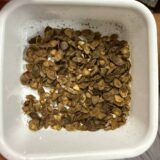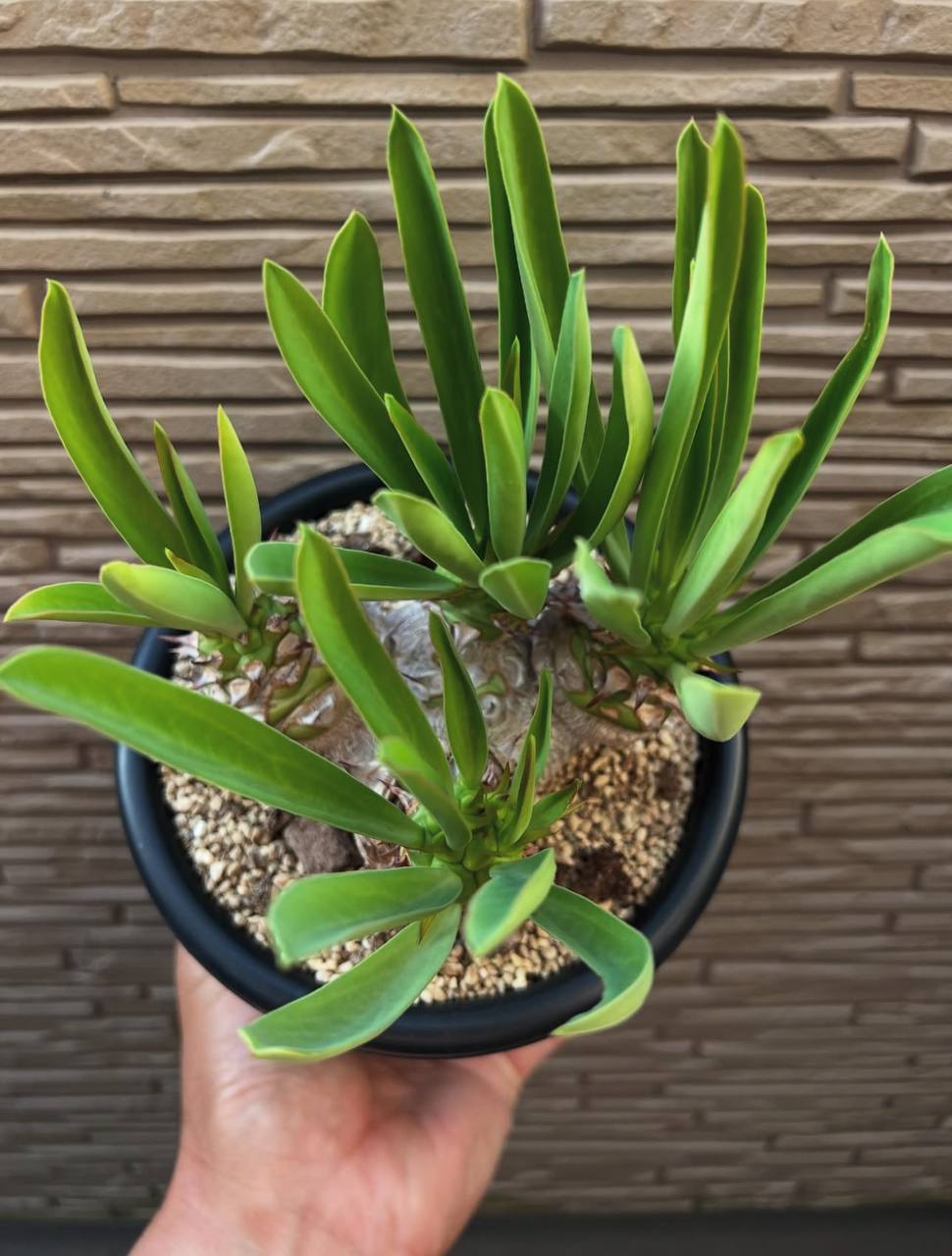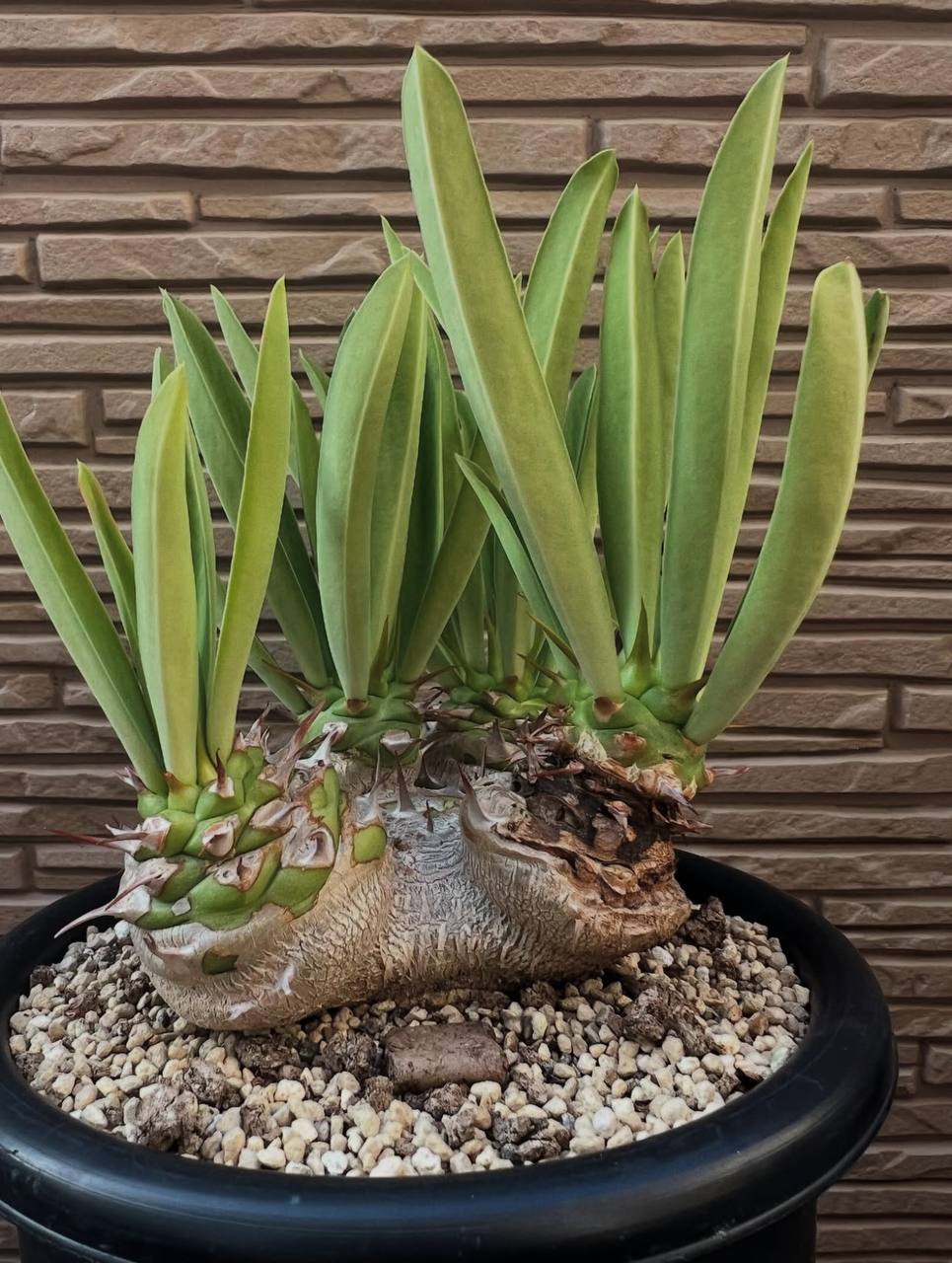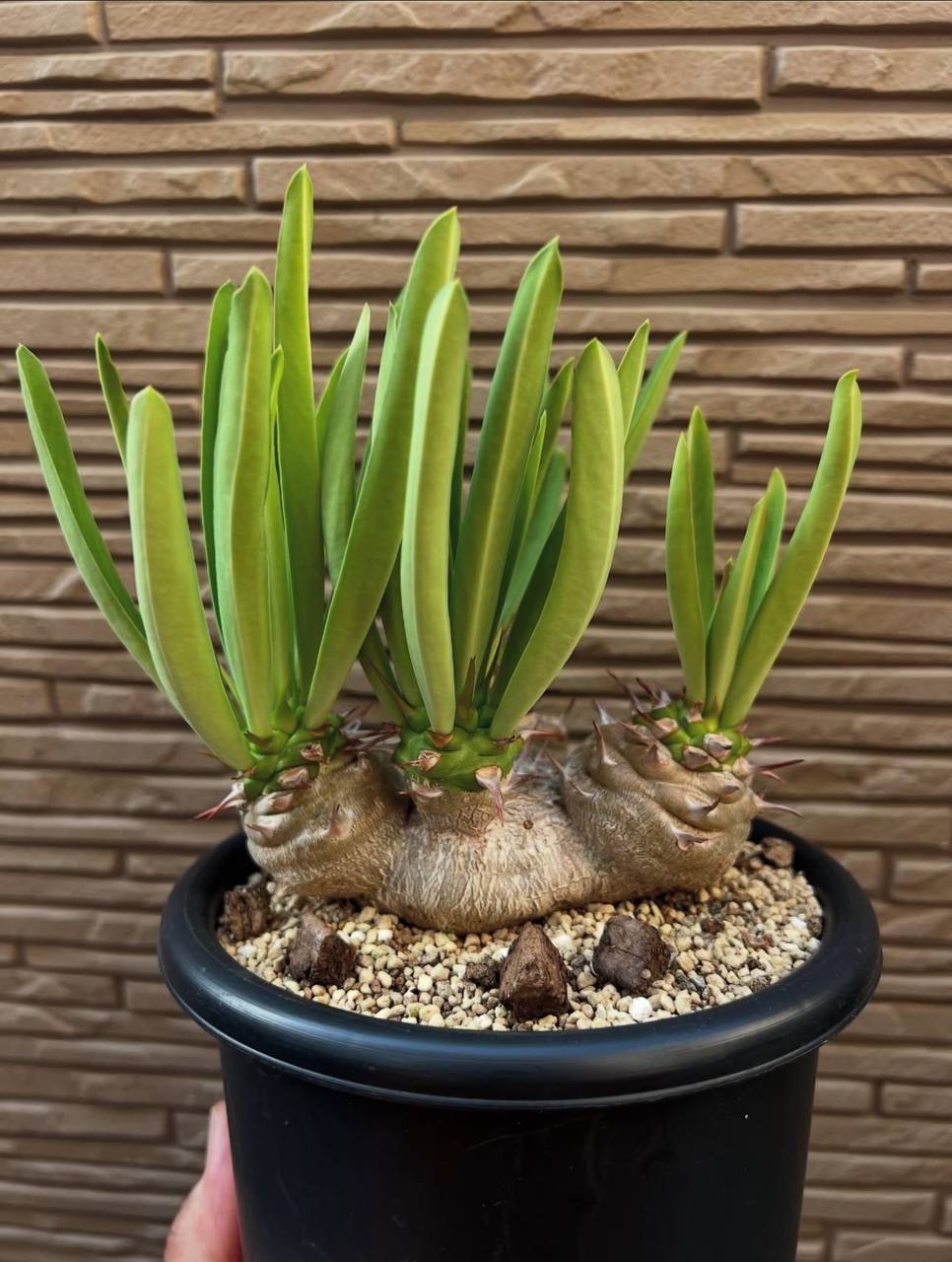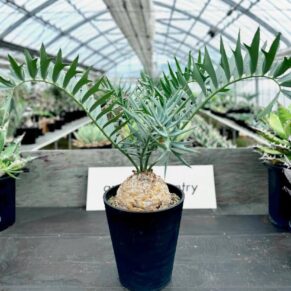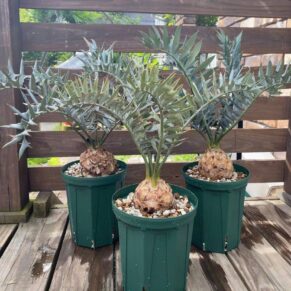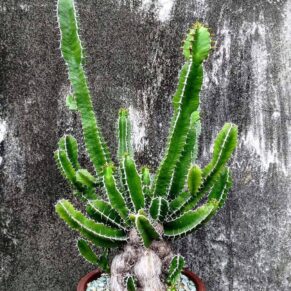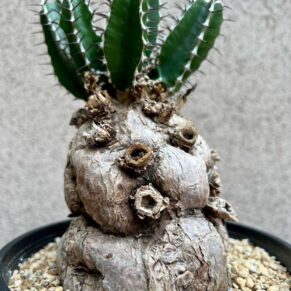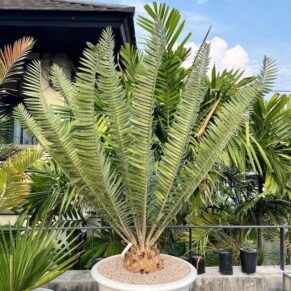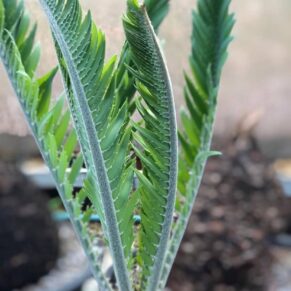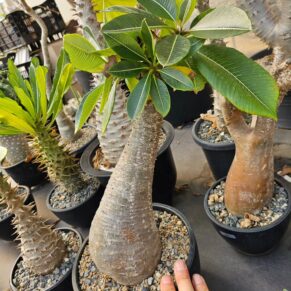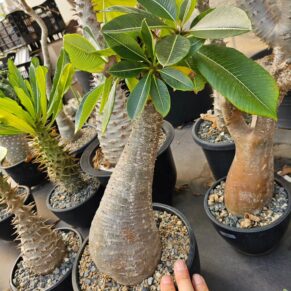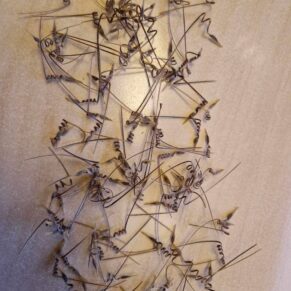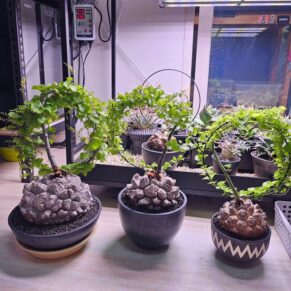- Your cart is empty
- Continue shopping
Euphorbia sapinii – The Definitive Guide for CaudExplants.com
🪴 Introduction
Welcome to CaudExplants.com, where we specialize in rare caudiciform succulents. This in‑depth guide to Euphorbia sapinii , designed to attract collectors, enthusiasts, and gardeners seeking expert care information. You’ll get everything from taxonomy to propagation, toxicity to ecological value—all around the core phrase Euphorbia sapinii.Our facebook group.
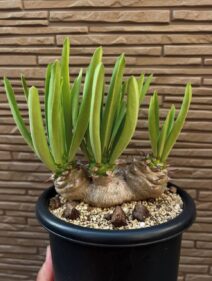
1. Taxonomy & Natural History
-
Scientific classification: Euphorbia sapinii De Wild., first described in 1908 in Annales du Musée du Congo Belge Native range: Cameroon, Central African Republic, Chad, DR Congo, Gabon, growing in wet tropical biomes .instagram
-
Named after botanist Adolphe Sapin (1869–1914), with “sapinii” honoring his central African collections caudexplants.com
2. Distinctive Morphology
-
Euphorbia sapinii develops a stout caudex, up to ~15 cm diameter, with branching stems reaching ~1 m tall reddit.com+caudexplants+15powo.science.kew.org+15.
-
Cylindrical stems adorned with tubercular spines; new growth produces banded leaves up to ~30 cm long.
-
Blooms feature individual cyathia ~5 mm across, greenish‑yellow, on short peduncles (~1 cm) instagram.
3. Cultivation & Care Essentials
Light Requirements
-
Thrives under bright, direct sunlight. Indoors, place under 1 ft from a south‑facing window for best results Greg App+1Greg App+1.
-
Insufficient light leads to etiolation and weak growth.
Watering Schedule
-
Prefers dry soil; moderate water—0.5 cups per 5″ pot every ~12 days when in indirect light. Watering only after soil fully dries Greg App+1Greg App+1.
-
Overwatering causes soft or yellowed stems; prevention is key.
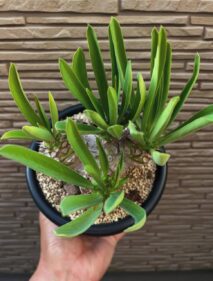
Euphorbia sapininii
Soil & Repotting
-
Use a gritty, fast‑draining succulent blend augmented with perlite or vermiculite Greg AppGreg App.
-
Repot annually or after caudex doubles in size.
Root Health
-
Exhibits a shallow, fibrous root system—adapted for fast moisture uptake reddit.com+4Greg App+4Greg App+4.
-
Rot often arises from poor drainage. Alert signs: mushy brown roots. Repotting into fertile, airy soil is essential.
Temperature and Hardiness
-
Sensitive to cold; declines below ~10 °C. Suited to USDA zones 8a–11b when grown outdoors Greg App.
Humidity & Dormancy
-
Enjoys moderate humidity but must dry between waterings. Growth slows in winter; reduce moisture accordingly.
Feeding
-
Minimal fertilizer—nutrient replenishment through repotting suffices. Avoid overfeeding :shop here
4. Toxicity & Handling Safety
Euphorbia sapinii secretes a milky latex containing diterpene and triterpene esters that irritate skin and eyes.
-
Exposure can cause severe contact dermatitis or ocular inflammation. Some exposures may lead to permanent damage Greg Appreddit.com.
-
Reddit warns:
“Euphorbia sap is toxic and will irritate your skin… if sap gets in your eye… have someone drive you to the ER… can cause blindness” reddit.com+8reddit.com+8reddit.com+8.
“Just be careful when working with it. Proper eye protection, gloves, and long sleeves. You’ll be fine.” reddit.com. -
Handling tips: Always wear gloves, long sleeves, and eye protection. Avoid touching eyes or mouth after contact. Wash thoroughly if sap contacts skin.
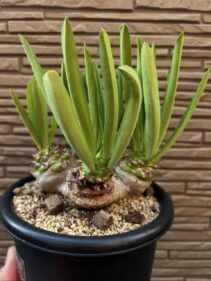
Euphorbia sapininii
5. Gardening & Propagation
Propagating from Cuttings
-
Use sanitized tools to cut stems, allow wounds to callous for several days, then plant in damp, well-draining medium. Roots form over weeks.
Propagating from Seeds
-
Although seed dispersal is less studied, Euphorbia sapinii likely produces small, explosive three-lobed capsules common to the genus plants.ces.ncsu.edu+6reddit.com+6reddit.com+6Selina Wamucii.
-
Sow seeds in coarse substrate, maintain warmth and humidity:shop here
6. Benefits & Landscaping Use
According to Greg App, top benefits include:
-
Drought‑resistance
-
Low maintenance
-
Unique sculptural form
-
Historic traditional uses
-
Attracts pollinators reddit.com+1plantaedb.com+1Greg App+3Greg App+3Greg App+3.
As an ornamental, Euphorbia sapinii shines in minimalist rock gardens, container sculptures, or alongside other caudiciforms. Its textured stems contrast well with groundcover succulents.shop here
7. Troubleshooting Common Issues
| Problem | Cause | Solution |
|---|---|---|
| Soft, yellow stems | Overwatering/root rot | Drain soil; repot with dry mix |
| Stretching/leggy | Low light | Increase direct sun exposure |
| Sap rash | Latex contact | Wear gloves; wash immediately |
| Leaf drop/no bloom | Poor light/nutrients | Improve light; repot if needed |
| Frost damage | Cold exposure | Move indoors; maintain >10 °C |
8. SEO Strategy for CaudExplants.com
To maximize search visibility for Euphorbia sapinii:
-
Include targeted keyword in page title,
<h1>, headings, meta description, and image alt tags. -
Use internal links to related species or care articles.
-
Integrate high‑quality images with alt text like “Euphorbia sapinii caudex” and “Euphorbia sapinii medicinal latex.”
-
Break text into scannable sections with structured headings.
-
Add a Call‑to‑Action: invite visitors to request rare caudiciform cuttings, subscribe for plant care tips, or join the CaudExplants collector
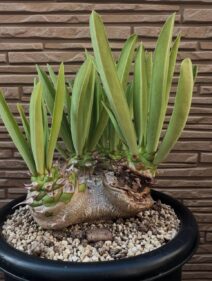
Euphorbia sapininii community.

